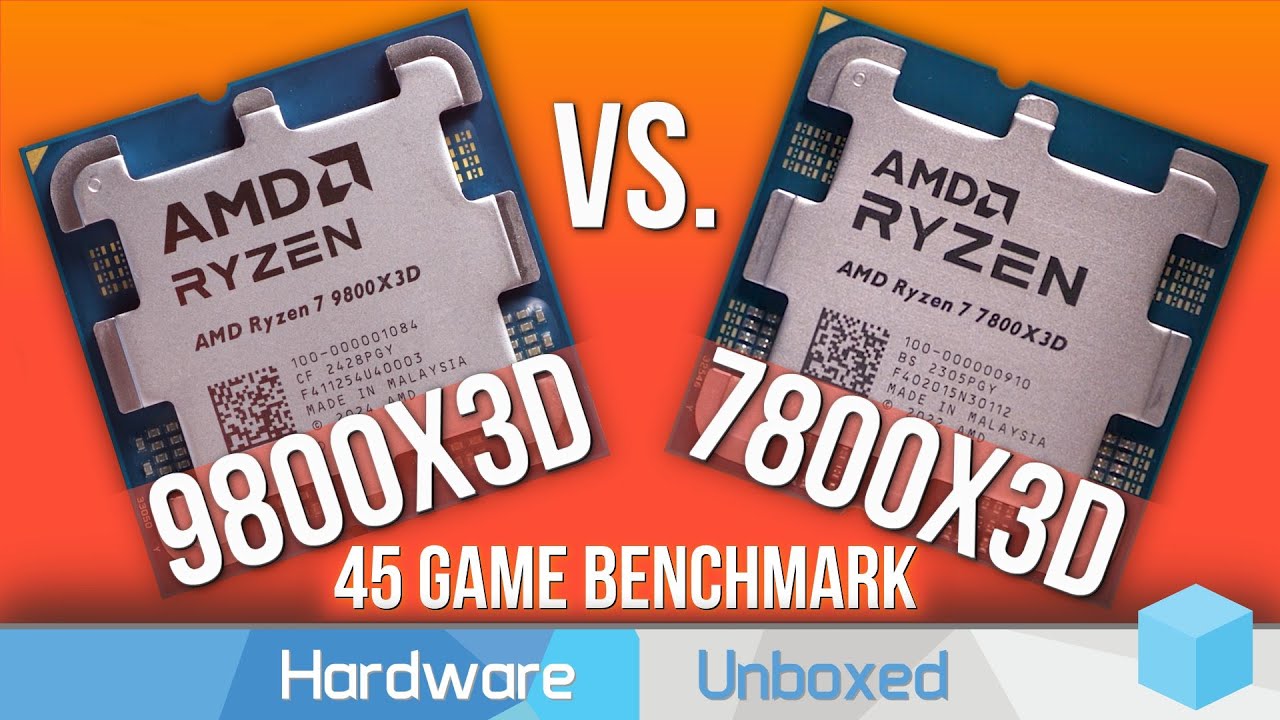The video compares the gaming performance of AMD’s Ryzen 7 9800X3D and Ryzen 7 7800X3D processors across 45 games, revealing that the 9800X3D generally outperforms the 7800X3D by an average of around 8% to 11%, with some games showing gains exceeding 20%. The host emphasizes that while the 9800X3D is the superior choice for gamers at a price of $480, performance improvements can vary significantly depending on the game’s demands.
In the video, the host discusses the performance comparison between AMD’s Ryzen 7 9800X3D and Ryzen 7 7800X3D processors, which were benchmarked across 45 different games. The 9800X3D has generated significant excitement due to its potential for improved gaming performance. The host expresses optimism about seeing at least a 10% uplift in performance, but the results exceeded expectations, with some games showing performance gains of over 20%. The video is sponsored by MSI, highlighting their GeForce RTX 40 series graphics cards, which are suggested for optimal gaming experiences.
The testing methodology is outlined, emphasizing that all benchmarks were conducted at 1080p resolution using the GeForce RTX 490 graphics card. Instead of presenting results in a traditional graph format, the video showcases the results for five games at a time, allowing viewers to see detailed FPS data for each title tested. The host encourages viewers unfamiliar with CPU benchmarking to check linked videos that explain the testing process.
In the initial results, the 9800X3D outperformed the 7800X3D in several titles, including “The Last of Us Part One,” which saw a 20% performance increase, and “Hogwarts Legacy,” which had a gain of up to 21%. Other notable improvements were observed in games like “Spider-Man Remastered” and “Cyberpunk,” where the 9800X3D showed significant performance boosts. However, in some titles, the gains were more modest, showing that the performance uplift can vary widely depending on the game.
As the video progresses, it highlights that while the 9800X3D generally provides better performance, there are instances where the gains are minimal or non-existent, particularly in less CPU-intensive games. The host notes that in 19 of the 45 games tested, the performance difference was only 5% or less. This suggests that the performance of high-end CPUs can be limited by GPU capabilities or the inherent demands of certain games, especially those that do not require substantial CPU power.
In conclusion, the average performance gain of the 9800X3D over the 7800X3D was around 8%, aligning with AMD’s claims. However, the host believes that a more representative margin of 11% is more accurate based on their findings. The 9800X3D, priced at $480, is positioned as the superior choice for gamers seeking the best experience, despite the higher cost compared to the 7800X3D. The video wraps up with a teaser for future comparisons involving Intel processors and invites viewers to subscribe for more content and join the community for exclusive perks.
